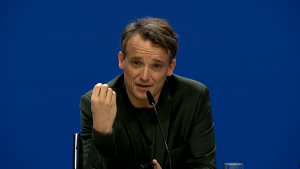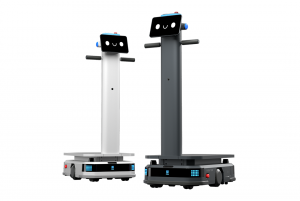Two tech giants and a popular actor aim to translate computer that thinks like a person
![]() What connects the two tech giants and popular actor Demi Moore’s ex-husband together? According to the Wall Street Journal, Elon Musk, Mark Zuckerberg and Ashton Kutcher joined the ranks to incest $40 million into Vicarious FPC, a secret artificial intelligence (AI) corporation.
What connects the two tech giants and popular actor Demi Moore’s ex-husband together? According to the Wall Street Journal, Elon Musk, Mark Zuckerberg and Ashton Kutcher joined the ranks to incest $40 million into Vicarious FPC, a secret artificial intelligence (AI) corporation.
Last month, Google invested $400 million in order to acquire the DeepMind company. Elon Musk (chief executive officer of Tesla Motors), Mark Zuckerberg (chief executive officer of Facebook) and Ashton Kutcher (actor) come to realize a similar movement, although minor, by joining a fundraiser in this area. The strange trio are investing into the second round of seed capital for Vicarious to further their goal to replicate the human neocortex with a positronic neural net.
Zuckerberg and Facebook have a history of work in artificial intelligence to enhance the capabilities of social network face recognition, although the report indicates that the investment was made in a personal capacity, not from Facebook accounts.
Good Ventures LLC, together with Facebook founders, PayPal, Napster previously put together a $15 million to fund Vicarious’ search for the key to AI.
AI with a human touch
The artificial intelligence similar to human is one of the major steps envisaged in the scientific and technological development of mankind and is one that could happen in our generation. Its relevance is that, a computer could be dedicated to solving complex problems such as curing diseases or designing energy sources.
Vicarious uses advanced computational principles to build and create software that has the human-like ability to think and learn. The objective is Vicarious is currently replicating the neocortex, the part of the brain that sees, controls the brain, understands the language and performs calculations. By translating the neocortex to the computer code “you get a computer that thinks like a person,” according to co-founder Scott Phoenix, Vicarious.
Imagine a machine that thinks like a human, but can be time savor and more productive because it does not need to eat or sleep, Phoenix said replicating computer body and brain functions. Vicarious FPC efforts are focused beyond simple image recognition and expressions, which are on top of it CAPTCHA system. The next step is the development of a computer that will shape the image and connect with specific textures. For example, a current computer can understand a chair, or ice, but Vicarious want to create a computer that can respond to a request such as “show me a chair made of ice.” The aim is to translate these complex mechanisms for code that will allow create a thinking machine.
Phoenix proposes that once his robots can understand “not just shapes and objects, but the textures associated with them” than there will be an explosion of robotic technology involving AI that will change our everyday life.
The technology that Vicarious is developing has the potential to improve all lives and revolutionize every industry. The creators of the company are hoping that their solutions through AI can cure disease, create cheap, renewable energy and solve other problems afflicting human civilization.
Strategies for the future of Facebook
Many high-tech companies rely on the possibilities of artificial intelligence. Recently Google bought the company of artificial intelligence DeepMind by $400 million, while TED announced XPrize looking at a computer that is able to create a conference with the quality of their best speakers.
The investment of Mark Zuckerberg, although it is only in a personal capacity, it is a clear indication of the strategies for the future of Facebook. The social network, for example, could take advantage of the billions of content posted by users to set up a service of intelligent questions and answers.
Facebook is also interested in spending the massive amount users shared information into an intelligent data. The WSJ report added that Facebook is also using artificial intelligence for facial recognition to identify users’ oriented images. In fact, the social network recently hired a specialist in artificial intelligence, Yann LeCun, to head a new laboratory. Last year at the New York University (NYU) Center for Data Science (CDS), LeCun announced that a Neural Information Processing Systems Conference (NIPS) project is in process with the help of Facebook to launch a research laboratory for AI.
Zuckerberg said that this group was formed “to do world-class artificial intelligence research using all of the knowledge that people have shared on Facebook. The goal here is to use new approaches in AI to help make sense of all the content that people share so we can generate new insights about the world to answer people’s questions.”
Facebook aims is to build AI services that are much more natural to interact with and can help solve many more problems than any existing technology today.
photo credit: Keoni Cabral via photopin cc
A message from John Furrier, co-founder of SiliconANGLE:
Your vote of support is important to us and it helps us keep the content FREE.
One click below supports our mission to provide free, deep, and relevant content.
Join our community on YouTube
Join the community that includes more than 15,000 #CubeAlumni experts, including Amazon.com CEO Andy Jassy, Dell Technologies founder and CEO Michael Dell, Intel CEO Pat Gelsinger, and many more luminaries and experts.
THANK YOU













